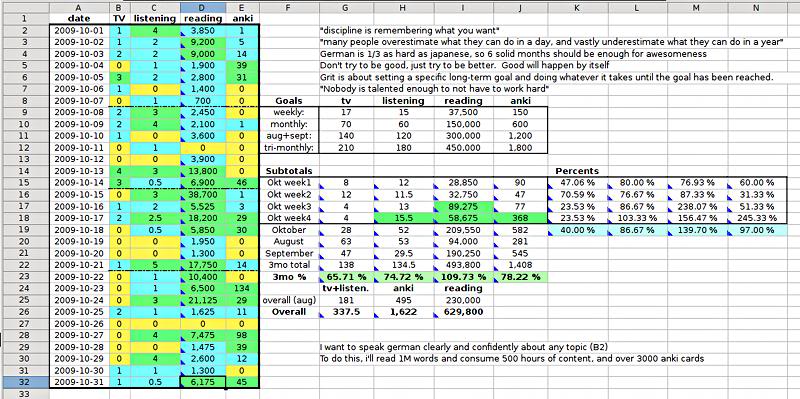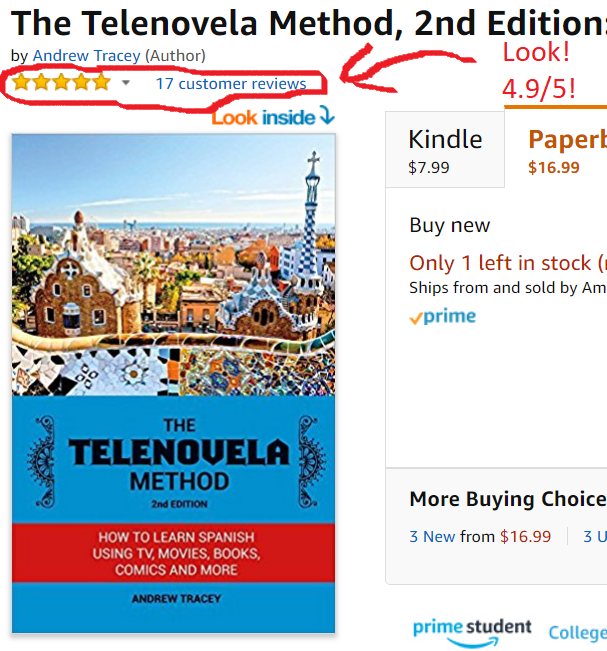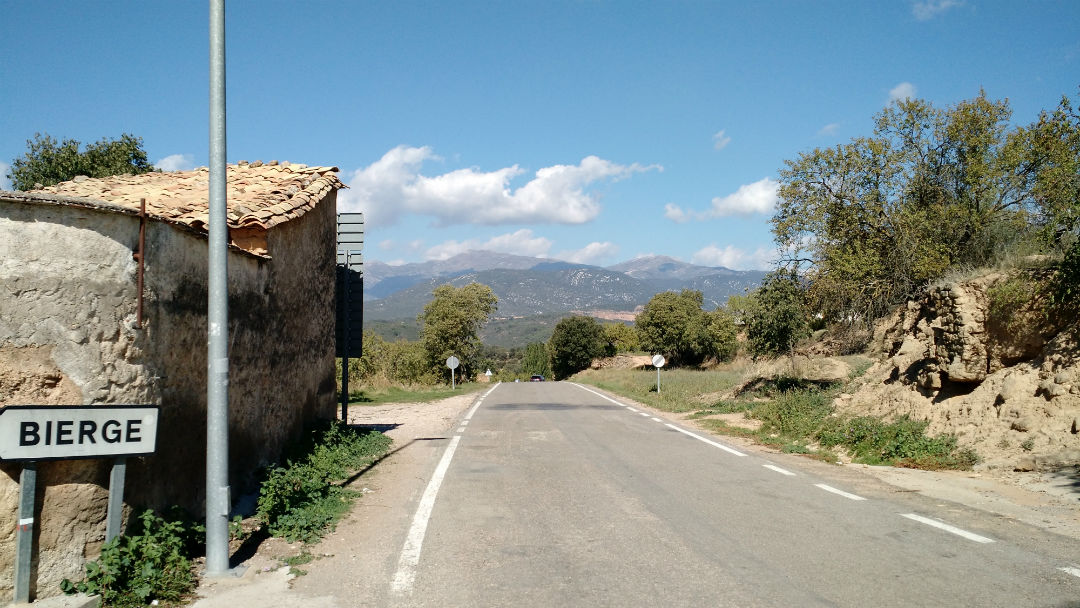
One question that beginners inevitably ask is “how long should I study every day?”. I will save you a lot of my usual babbling and give you my personal opinion based on years of experience in foreign language learning right now: 30 minutes per day is the bare minimum. This is the minimum that you need to actually make continuous, consistent progress. It won’t be very fast progress, but it will be consistent and continuous. It might be a couple of years before you’re competent enough to start practicing with native speakers, and then once you start doing that, presuming that you’re spending all 30 of your minutes actually speaking with a native speaker (which you should be at that point, there really is no
better use of your time), another 6 months or year before you’re conversationally fluent (basically meaning that you can hold a conversation about normal, daily subjects for 15 minutes straight with a native speaker–this is my own personal definition upon which I will expand and explain how people define “fluency” in a later post).
This time frame (taking 3 or 4 years to get to where you can have a conversation) might seem unbearably long, but it really is entirely dependent on YOU: what are your objectives and time frame? This might be perfect for a person who has very little spare time per day and also isn’t planning on traveling seriously for another 5 or 10 or 20 years (maybe they’re in their 30’s and won’t have the time to travel extensively until they retire when they’re 55 or 60 and would like to get some languages under their belt in the mean time in preparation for that).
If you’ve got a deadline to be fluent in 3 or 6 months when you’ll be going to the country in question, then obviously you’ll have to invest quite a bit more time and effort.
Can you study for TOO long?
I would also like to state that there really is no ‘maximum’, you can’t really overdo it. Now, you need to take breaks, but you can’t really practice ‘too much’ in one day presuming you’re doing that. I wouldn’t go for more than 30-45 minutes at a time, and even that is really pushing it, ideally I’d aim for probably 15-20 minutes of study/practice, then a 5-10 minute break, then 20 more minutes, then a break, etc., and also have a bit longer break (20-40 minutes) every…say, 2-3 hours or something like that? You’ll have to break for meals and such anyway, so you see what I’m saying.
Nappy-nap! 😀
Also, don’t forget naps. Naps are awesome!!! No, really: not only do they feel great but they also work near miracles for recharging and refreshing you for another sold study session when you’re really lagging (listen to your body, if it tells you you need rest, rest!).
Don’t keep doing the same type of studying for two sessions in a row, switch it up, mix-‘n-match. Memorize some vocab for 20 minutes, then break, then come back and watch a telenovela (while entering new words you hear into Anki, of course), then break, then get on Skype and talk with a language exchange buddy for 20 or 30 minutes in your target language (you’ll also likely have to allocate an equal amount of time for helping them with their English as they do for you in Spanish or whatever language you’re learning), etc.
Organization and scheduling
For the organization/spreadsheet nuts out there, this is for you. I’d like to share a couple of VERY cool little techniques and tools with you that you can use to schedule and otherwise organize your language-learning study time. I got both of this from this thread over at HTLAL (thanks, doviende) where they go into a very long discussion on “how long do you study every day?”, I highly recommend you check it out. Here are a couple of examples below that doviende posted about showing how he scheduled his foreign language study time in excel (click to enlarge):
Example 1
Example 2
I’d also highly recommend you check out something that Khatzumoto over at All Japanese All The Time posted about called a ‘Victory Calendar’ that he uses to motivate himself by giving himself a deadline upon which he “achieves victory”, it’s a very good use of deadlines (which I am a fan of). Listen to this:
“The last day on the calendar is fluency. Giving my fluency a date really makes a difference; it brings it from the realm of dream to the level of an actual calendar event. Maybe you can try making your own Victory Calendar.
Indeed, one thing that drove me to go all the way with Japanese was that I had to be ready to go to a technical career fair at the 18-month mark, where I would have job interviews in Japanese. Money had been paid, air tickets bought and a hotel room reserved, months in advance. Cash and face were on the line. Through the Victory Calendar, I am trying to bring some of that “encouragement”, and concreteness, to my Cantonese process.”
Superb.
I learned to speak conversational Spanish in six months using TV shows, movies, and even comics: I then wrote a book on how you can, too
I have a whole method and a book I wrote about it called The Telenovela Method where I teach you how to learn Spanish from popular media like TV shows, movies, music, books, etc. that you can all find online for free. It was the #1 new release in the Spanish Language Instruction section on Amazon for nearly a month after it came out and currently has 17 reviews there with a 4.9/5 stars average. It's available for $7.99-$9.99 for the e-book version depending on who you buy it from (Kindle version on Amazon is now $7.99) and $16.99 for the paperback (occasionally a bit cheaper, again, depending on who you buy it from).
It's currently available in both e-book and paperback from:
Cheers,
Andrew









